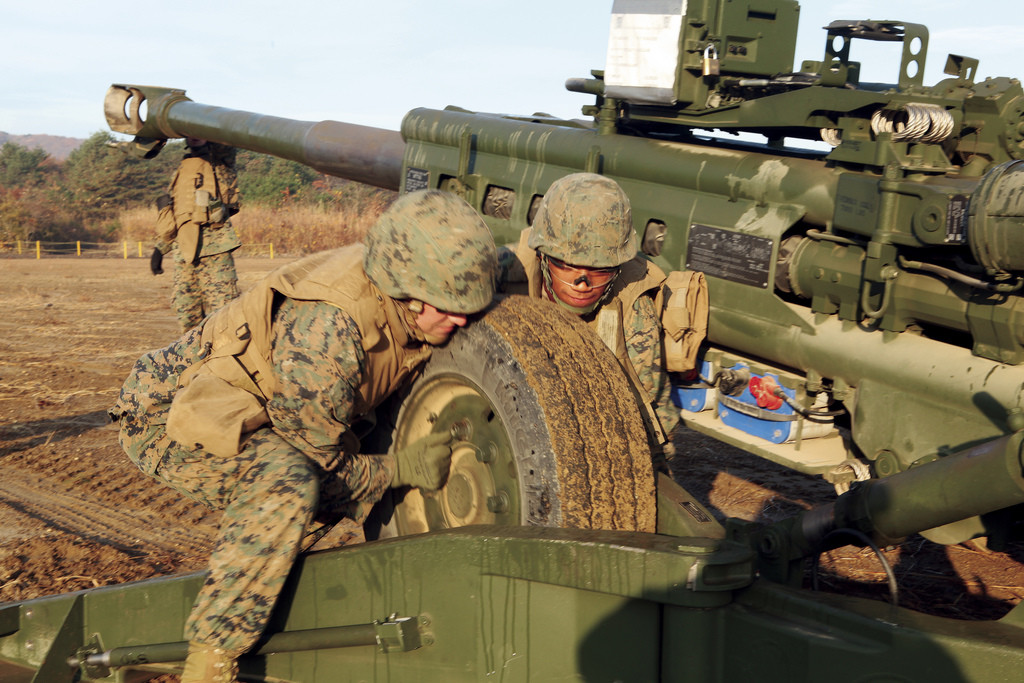The Mission: Talking Realism

“[I]n a world in which relative power levels are narrowing and means are diluted, America’s historical black hole, a bifurcation between policy and operations, must be closed. Given that our country expects great sacrifices from those toiling at the tactical level, much more can and should be expected at the summit. It is my expectation that War on the Rocks will help fill in the black hole.”
With these words, Frank Hoffman concluded a powerful essay and articulated the War on the Rocks mission statement. I did not start WOTR because Washington needed another foreign affairs publication or blog. I started it because this black hole identified by Frank sits forbiddingly before us and I did not see any other publications working to close it. Too often, foreign policy commentary lacks substance, gets lost in tactics and gossip, and favors snark over substance. This is why WOTR draws on the most experienced stable of contributors of any publication in this field and is realist in its approach.
Since launching War on the Rocks, I’ve been asked what we mean by realism, our founding school of thought. There are, indeed, competing interpretations of the term and I recognize that few people in a society as self-consciously pragmatic as ours would countenance being called “unrealistic.” Moreover, I am running a web publication with a rowdy bunch of contributors who have many different opinions on many different things. I do not expect or even hope that our common badge of realism will overcome the cacophony of our opinions. This is fitting for realism, a doctrine of sorts that does not tell us what to think, as competing frameworks often do. It teaches us how to think. Realism is the study of human relations with a focus on power and strategy. Yet, as it has risen off the ground, the manor of realism has branched off in several different directions and now looks like a cross between a Gehry building and a platypus. And I am now often asked if I associate with a particular tower or appendage of this grotesque structure/creature: classical, neo-classical, structural, contingent, defensive, or offensive (True, I am often offensive, but that has nothing to do with my realism).
War on the Rocks is ecumenically realist toward a goal. It is, again, the study of human relations with a focus on power and strategy. It associates with none of the particular sub-branches named above. And as someone toiling at the intersection of history and sociology, I personally do not accept the structure provided by international relations theory, but that is a discussion for another time. WOTR is not a vehicle for my disciplinary prejudices nor are we interested in theory-heavy disputes taking place in ivory towers far above and away from the real world. It is a forum for outcome-oriented commentary, analysis, and conversation aimed at filling the black hole.
As such, realism’s disputes with competing views – namely idealism – demand our attention far more than realism’s comparatively petty civil wars. WOTR is far more concerned with idealism’s efforts to elevate morality to the summit of debates over the use of power in such a way that serves neither morality or power.
These are thoughts that I will develop further over time through many exchanges with our editors, contributors, and readers. I close by welcoming four exciting new regular contributors:
- T.X. Hammes is a Senior Fellow at the Institute for National Strategic Studies at the National Defense University. T.X. served 30 years in the U.S. Marine Corps — primarily in the operating forces. He participated in stabilization operations in Somalia and Iraq and trained insurgents in various locations. He holds a BS in Operations Analysis from the U.S. Naval Academy and an MSt and DPhil in Modern History from Oxford University. He has lectured widely and published on insurgency, irregular warfare and future conflict.
- Marc Tyrrell is an anthropologist with a research focus on the practical and philosophical grounds of how sense-making is possible or, in other words, how do people make sense of their lives and what do they use to do it? Marc is teaching at the Institute of Interdisciplinary Studies at Carleton University (Ottawa, Canada) and is a Senior Research Fellow with the Canadian Centre of Intelligence and Security Studies.
- Kathleen J. McInnis is an Adjunct Fellow at the Center for Strategic and International Studies, a Research Consultant at the Royal Institute for International Affairs and an MPhil/PhD Candidate in the Department of War Studies, King’s College London. Kathleen co-founded Caerus Associates, LLC, and served as its Chief Operating Officer and Executive Vice President. Before that, Kathleen served as Operations Director, NATO-Afghanistan, in the Office of the Secretary of Defense (Policy), working for the Deputy Assistant Secretary of Defense for European and NATO Affairs.
- Robert Haddick is a contractor at U.S. Special Operations Command. From January 2009 to September 2012 he was Managing Editor of Small Wars Journal. During this time, he wrote the “This Week at War” column for Foreign Policy. Haddick was a U.S. Marine Corps officer, served in the 3rd and 23rd Marine Regiments, and deployed to Asia and Africa. He has advised the State Department, the National Intelligence Council, and U.S. Central Command.
Thank you for reading and supporting WOTR.
Ryan Evans is the Editor-in-Chief of War on the Rocks.
Photo Credit: DVIDSHUB

